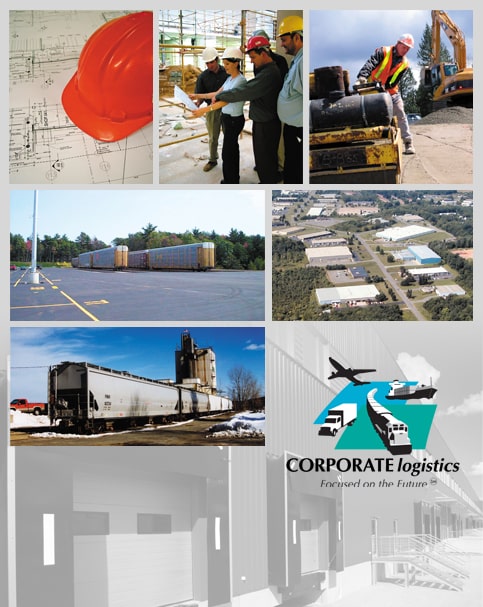Finding the perfect location for a new industrial facility is one of the biggest decisions a company must make. Site selection decisions have long-lasting consequences and generally involve a painstaking process that takes months, if not years, to complete. Finding an existing structure or identifying a vacant parcel for new construction requires a review of many factors such as: location, topography, price, transportation and utility infrastructure, local business climate, community attractiveness and availability of quality labor force. Corporate Logistics specializes in finding perfect locations for its industrial business clients.
Site Selection from a Corporate Perspective
Corporate Logistics conducts site selection from the perspective of corporate decision makers. We begin by developing a thorough understanding of the client’s operations and objectives and then start to match needs with possible location opportunities. Included in our services are:
- Comprehensive location studies, conducted nationwide, identifying optimum sites for new facilities.
- Searches for existing facilities that meet client criteria.
- Long-range development programs integrating facility requirements with other components of corporate planning.
Identifying Essential Search Criteria
Corporate Logistics can help identify essential geographic criteria that support a client’s business objectives. Afterwards, we use our unique resources to search for locations that offer the best match. These include:
- Computer capabilities for gathering and analyzing data and modeling operating conditions
- Database and library resources containing information essential to location decision making.
- A network of professional contacts throughout North America who can provide firsthand updates of local business conditions.
Finding the Ideal Location
Once our criteria are established, Corporate Logistics begins a nationwide or region-wide scan for favorable conditions. Among the issues we address are:
- Labor force: availability, quality, cost, work ethic, labor/management relations, and presence of critical skills.
- Infrastructure: Siting buildings, transportation modes, utilities (energy, water, etc.), and telecommunications.
- Local business climate issues: taxes, incentives, legislative/regulatory climate, and fiscal responsibility.
- Community attractiveness: housing, schools, image, and presence of similar professionals.
Other Services:
Turn-Key Facilities (Design-Construction-Management)
- Feasibility studies; analysis of transportation requirements.
- Site assessment:
- Land acquisition
- Geotechnical investigations
- Zoning
- Planning issues
- Environmental impact statements
- Permits
- Public hearings
- Engineering design, plans and specifications.
- Project financing:
- Presentations to financial institutions and potential stakeholders
- Identification of possible government funding sources
- Agreements for construction or construction management
- Construction of facility
- Development of operations plan
- Facility operation and maintenance
Construction/Operations Support
(Serving Owners or Contractors)
Contract Procurement
- Development of RFP/RFQ
- Development and review of contract specifications
- Prequalification
- Bid Protests
- DBE issues. Extra Work Contract Claims
- Analysis of contract ambiguities, site conditions, and methodology
- Documentation of claims and development of appropriate back-up
- Submission of claims; presentation at dispute review board, arbitration, or other forums
- Settlement negotiations
